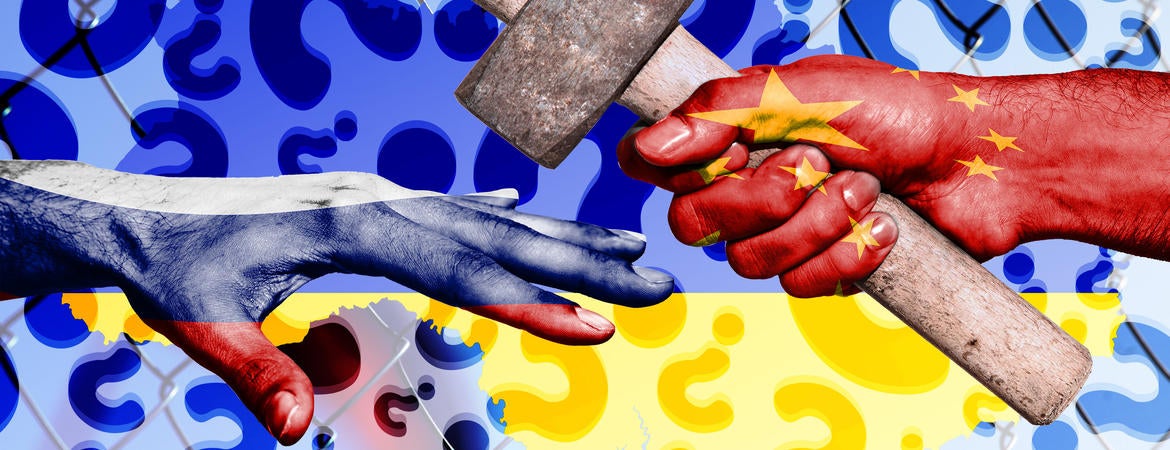
Related to Russia's ongoing war with Ukraine, China is fielding as many requests for aid from Russia as it's receiving threats from the West about what will happen if it provides that aid. We asked two UC Riverside China experts to provide perspective about the likelihood of all-in Chinese aid to Russia.
Perry Link co-translated The Tiananmen Papers, related to the 1989 democracy protests. In response to his role in the translation, since 1996 he has been blacklisted by China. He is a a board member of the Committee for Freedom in Hong Kong. Link is a chancellorial chair at UC Riverside and previously taught Chinese language and literature at UCLA and Princeton University. He received his bachelor’s and Ph.D.’s from Harvard University. Steven Liao researches foreign real estate investment, international trade, and the international political economy. Recent research considered Chinese investment and its influence in the 2016 and 2020 U.S. elections. Liao is an assistant professor of political science at UCR, and an affiliated scholar at the 21st Century China Center at UC San Diego.
Q: Can you describe the line China is attempting to straddle where the war in Ukraine is concerned?
Perry Link: For Xi Jinping, the key question is: Which is worth more for the future of my power: Putin's help in pulling the US off of the "world number one" pedestal? Or engagement with the Western economy in continuing to grow China's economy?
Steven Liao: China is trying to walk a fine line between Russia and the West on Ukraine and I do not think this stance can be moved in the short term, even in face of Western pressure.
Q: Economically speaking, how would a hardline stance against Russia from China impact Russia and its campaign in Ukraine? How likely is China to adopt economic sanctions against Russia?
Steven Liao: Such a stance would hurt significantly as Russia has substantial reserves in yuan assets and a multi-billion dollar currency swap agreement with the People's Bank of China that could give Russia much-needed liquidity in face of Western sanctions. But the stance is very unlikely, especially given the partnership the two countries recently established in Beijing at the start of the Winter Olympics.
Q: Where the U.S. is concerned, what is in the common interest of China and Russia?
Perry Link: Putin and Xi both see the US as the most powerful country in the world and both wish that this were not so, so that their own power could reach farther.
Q: If China supports Russia with weapons and/or money, what’s the potential fallout for China from the West? How far can the West afford to go against China in terms of punitive sanctions?
Steven Liao: China will be tied with Russia on an issue that is highly unpopular across Western countries and thus risk being further isolated. The U.S. has also warned China of the potential consequences. Economic sanctions could hurt China more than Russia, given China's deeper economic integration with the West. That being said, the deeper integration may also make threats of economic sanctions by the West against China less credible given their potential costs.
Q: Do you see the war in Ukraine further cementing the Chinese-Russian relationship?
Perry Link: Putin wants that result, for economic reasons. Since he faces sanctions by most of the rest of the world, China is important to him. Whether Xi wants more cement is less certain. Xi's only priority is his own power, and if he judges that his power is served by moving away from Putin, he will do that.
Q: What does a unified geopolitical front between Russia and China mean to the world?
Perry Link: A strong geopolitical front between Russia and China would be bad news for the world. It is doubtful that it will grow strong, however. The two are not traditional friends. Their current cooperation is opportunistic on both sides.



